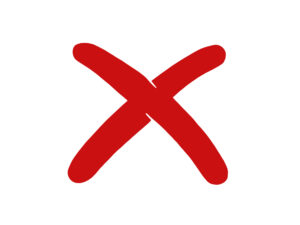How ethical and sustainable is Red Stripe?
Red Stripe is included in The Good Shopping Guide’s Beer, Lager & Cider Ethical Ratings Table.
Even though Red Stripe has yet to meet our Ethical Benchmark, we hope that it will begin to implement more ethical policies to improve its ESG and CSR.
By submitting an application for Ethical Accreditation, which consists of a more extensive assessment and recommendations for ethical development, Red Stripe may increase customer and investor confidence.
More information on the issues may be found in The Good Shopping Guide to Ethical Lager, Cider and Beer brands.
Then, in our Beer, Lager and Cider Ethical Ratings Table compare it to other brands.
What does Red Stripe do?
The first Red Stripe branded beer was brewed in 1928 by Thomas Hargreaves Geddes and Eugene Desnoes.
Red Stripe beer is a Jamaican-style beer that became a part of the Heineken brand group in 2015. The beer won the Gold medal in the 2022 Monde Selection; you can read more about its history here.
Although typical Red Stripe beer is available in many countries around the world the brand has other Jamaica-specific flavourings such as Red Stripe Light, Lemon Paradise, Sorrel and Melon.
For which criteria does Red Stripe perform poorly?
Red Stripe received poor ratings for its lack of Organic and vegan beers, Genetic-Modification Policy and Public Record Criticisms.
Past Criticisms of Red Stripe’s ethical record
Red Stripe’s ethics criticisms come from its parent company, Heineken. Heineken received a low score in the Corporate Information Transparency Index, which you can read more about here.
The brand also received a low rating of D- on As You Sow’s 2021 Corporate Plastic scorecard for its Plastic Packaging pollution.
In what areas does Red Stripe score well for its ethics?
Red Stripe received a high score in our Animal Welfare, Political Donations, Nuclear Power, Environmental Reporting and Armaments categories. Heineken has a sustainability strategy that includes a range of long-term environmental goals, therefore earning Red Stripe a top score too.
How can Red Stripe improve its Ethical Rating?
Red Stripe could apply for Ethical Accreditation for more detailed suggestions on how to improve. The Ethical Rating of a brand is divided into three categories by The Good Shopping Guide: the Environment, People and Animals.
By introducing an organic or vegan beer range, Red Stripe may raise its rating and satisfy our Ethical Benchmark. The brand should also consider how to improve its public perception in regard to its parent company, Heineken, as well as releasing a Genetic Modification Policy.
Why not check out The Good Shopping Guide’s Ethical Accreditation if you work for or with a beer, lager or cider brand that places ethics high on its priority list?
Contact us to learn more, or complete our short form for an initial ethics and sustainability evaluation.
Ethical performance in category
GSG score
GSG category benchmark
Ethical Rating
Environment
-
Environmental Report
Good
-
Genetic Modification
Poor
-
Organic
Poor
-
Nuclear Power
Good
-
Fossil Fuels
Good
Animal
-
Animal Welfare
Good
-
Vegetarian/Vegan Verified
Poor
People
-
Armaments
Good
-
Political Donations
Good
Other
-
Ethical Accreditation
Poor
-
Public Record Criticisms
Poor
-
Public Record Criticisms+
Poor
= GSG Top Rating = GSG Middle Rating = GSG Bottom Rating
